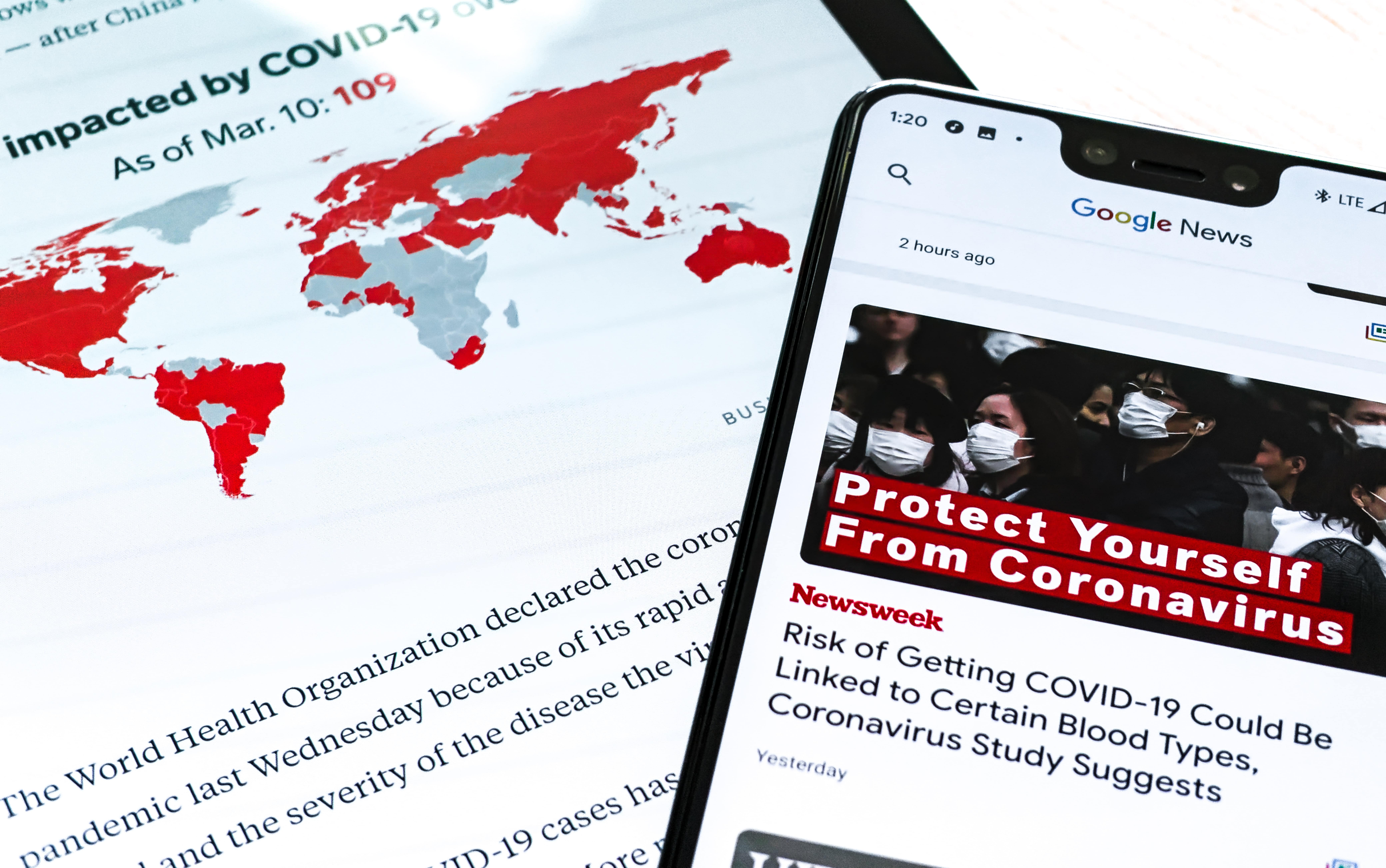As we navigate through this COVID-19 pandemic, it’s more important than ever to have reliable, up-to-date information available, whether it’s health-related or something that impacts your business. RentSimpli is a full-service Southern California property management company specializing in single-family homes, townhouses, condos, mobile homes, small commercial buildings and small apartments.
We understand that the active, ongoing disaster all of us are facing is creating a lot of anxiety and doubt. We’re here to support you as a landlord and a Riverside county or San Diego investment property owner during every potential crisis, including the current coronavirus outbreak.
Today, we want to share some tips on how to be a good landlord when a global emergency like this takes hold. Remember that as terrible and uncertain as it is right now – it’s also temporary. Things will be back to normal at some point, and your current and potential tenants will remember how you set yourself apart and what you did during this pandemic.
Communicate with Tenants and Property Managers
Communication is always critical when you’re renting out a property, but during the COVID-19 crisis, it’s even more important. First, make sure you’re communicating consistently with your Riverside county and San Diego property managers. You should be talking about plans and options and working together on solutions that serve you now and in the future.
If you’re managing on your own, you need to be having open and honest discussions with your tenants. Those residents are feeling all the same anxieties and stresses that you are. They may have lost their jobs. They might have had their hours or their salaries cut back. Don’t wait for them to call you with the bad news that they can’t pay rent. Be proactive and reach out. Before you even ask about rent, find out how they’re doing.
Then, talk about realistic plans for rent payments. Perhaps a little bit of rent can be collected. Maybe you can restructure your due dates or put together a payment plan. See what kind of solutions and compromises you can come up with together. If your tenant feels like it’s a discussion rather than a demand, you’re going to get a lot more cooperation from them.
You’ll also want to talk about things like non-emergency maintenance requests, which may have to wait. Ask if they need resources on how to get help with utility payments or food services.
Your tenants may be on edge, worried about their current state-of-affairs. As a good landlord, it’s your job to keep a level head and to communicate openly, even if you’re worried too. Respond to every phone call, text message, and email.
Eviction Moratoriums and Tenant Protections
California has a statewide moratorium on evictions until May 31, 2020. Even if you were moving towards an eviction before the coronavirus pandemic occurred, you won’t be able to do much until later this summer.
The executive order prohibits any landlord from evicting a tenant for nonpayment. It doesn’t allow any courts or law enforcement agencies to remove renters from their homes. Tenants have some responsibility too. They must make a written statement up to seven days after the due date that they cannot pay all or part of their rent because of COVID-19.
Your tenant is still obligated to pay rent, and you’ll be able to evict when the moratorium is over. But, that shouldn’t necessarily be your first priority right now.
Not receiving rent is frustrating. We know that, and we understand the financial stress it puts on you. A lack of rent disrupts your own income and hampers your long-term ROI.
You have to follow the law, however, and that’s why it’s better to have a positive and proactive discussion with your tenants. We also recommend that you take advantage of your own benefits. There may be mortgage relief available to you, and it’s possible you can negotiate something with your bank or lender.
Tenant Retention is Important
We don’t know what the Riverside and San Diego rental markets are going to look like after this pandemic is over and things begin to normalize. As a landlord, you may be facing lower rental values and an absence of new tenants looking for homes.
It’s important to give your current tenants a reason to stay in your property. If the market suffers, finding new tenants who can pay the rent you’re currently charging may be challenging.
Evicting your tenants who are behind in rental payments as soon as the moratorium is lifted is one way to get back to the normal business operations that you’ve followed for years, but it might not put you in a stronger financial position. In fact, it could hurt your business. Will new tenants want to rent from a landlord who was eager to evict people during a time of crisis?
 Think about your reputation. The recovery period will be long, and the decisions you make will continue to impact your business long after this global emergency is over. You’ll want your tenants to say that you were supportive, compassionate, and easy to talk to. Set yourself apart from other Riverside and San Diego landlords. Demonstrate that you are a good landlord and strong enough to handle the COVID-19 crisis and any other emergency that comes knocking on the doors of your rental properties.
Think about your reputation. The recovery period will be long, and the decisions you make will continue to impact your business long after this global emergency is over. You’ll want your tenants to say that you were supportive, compassionate, and easy to talk to. Set yourself apart from other Riverside and San Diego landlords. Demonstrate that you are a good landlord and strong enough to handle the COVID-19 crisis and any other emergency that comes knocking on the doors of your rental properties.
And if you need help, don’t hesitate to contact us. RentSimpli is a full-service property management company serving landlords, investors and property owners in San Diego & Riverside Counties, with a specialty focus across Temecula, Murrieta, Menifee, Fallbrook, Escondido, Rancho Bernardo, La Mesa, El Cajon and Chula Vista.
